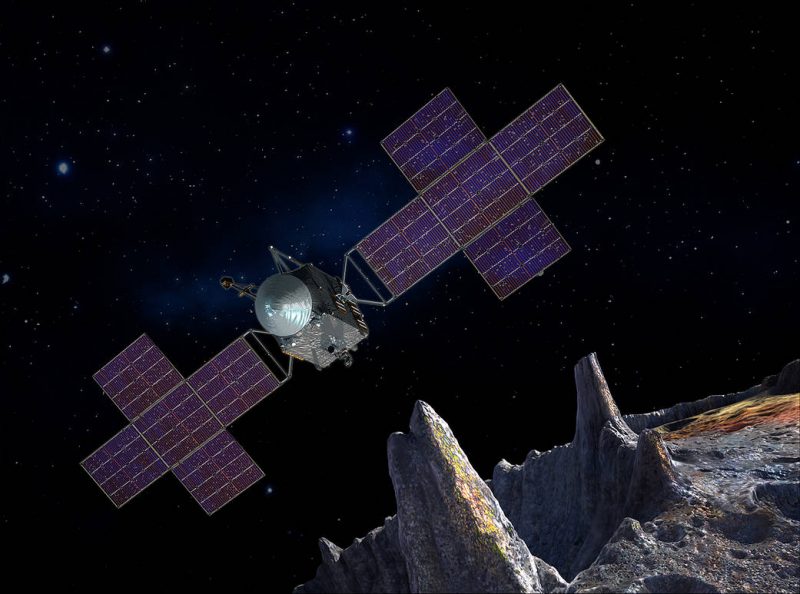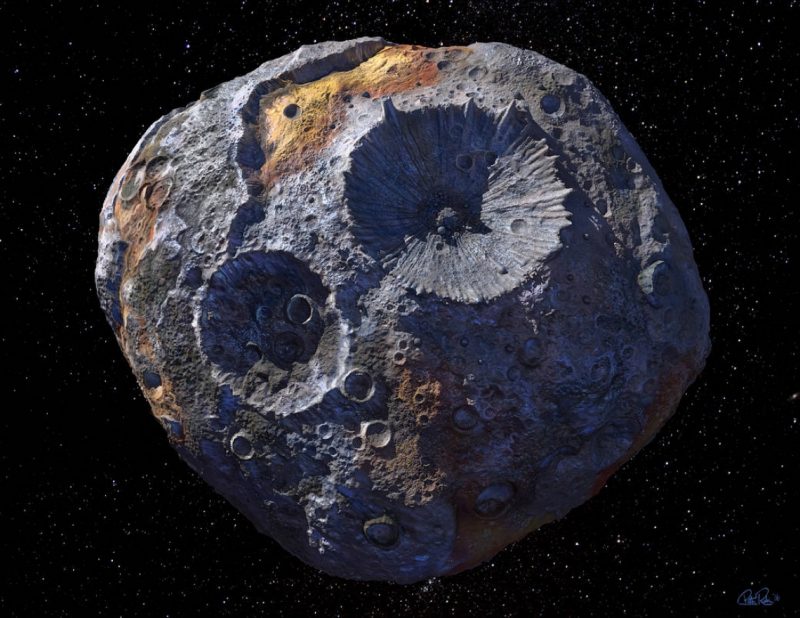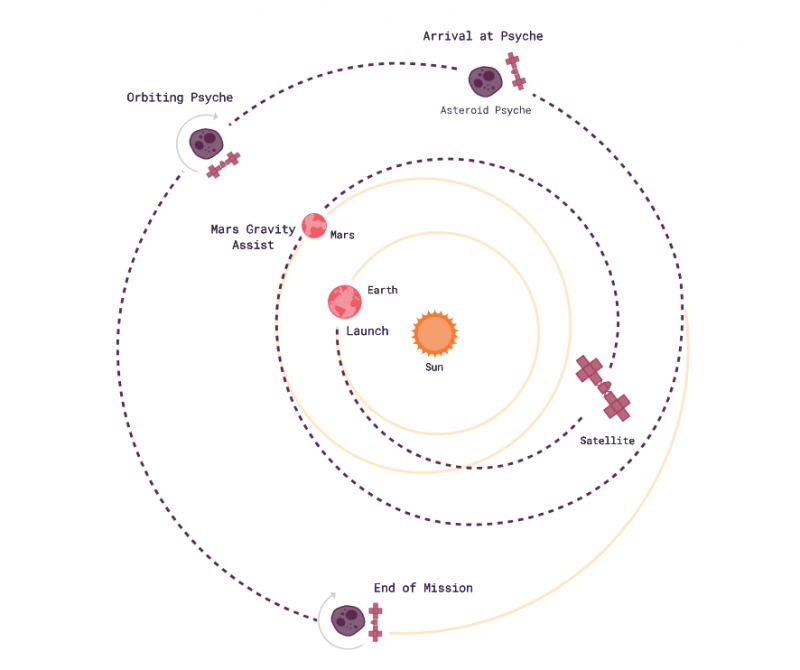
Psyche is an asteroid floating in our solar system’s asteroid belt between the 4th planet Mars and 5th planet Jupiter. Some scientists believe the asteroid is the remains of an iron-rich core from a failed planet, whose metallic resources are worth some $10,000 quadrillion (that’s 15 more zeroes). But others aren’t so sure.
Arizona State University is leading a mission that’ll send an exploratory spacecraft to asteroid Psyche. The Psyche mission is set to launch from Kennedy Space Center in Florida on October 5, 2023. It’s due to arrive at the asteroid in 2029.
Psyche mission goals
The Psyche spacecraft will orbit the asteroid for three years. In that time, scientists hope to learn more about the origins of the asteroid and whether it was a planetesimal, that is, a solid chunk of stuff leftover from the formation of our solar system some 4.5 billion years ago.
They also want to explore Psyche’s topography (the features of its land surface) and determine the age of its surface. They say it’ll give them insight into the interiors of all the terrestrial planets, including Earth.
But the big question is … is Psyche a true metal asteroid, as once believed? Or is it closer to what scientists call a “rubble pile?”
There’s no way (at present) to put a true price on space objects such as asteroids. But many have tried to estimate the worth of asteroid Psyche, with its metal-rich composition. One estimate suggests a massive, metal-rich object would be worth $10,000 quadrillion, more than the entire economy of Earth.
If Psyche isn’t as dense as once believed, this estimate will go down.
Still, either way, Psyche will be worth a lot! And, to scientists, it’ll remain … priceless.
Mining the asteroid?
Now, about that $10,000 quadrillion worth of metals in Psyche … NASA is not on a mission to mine an asteroid. Instead, NASA says, Psyche is a science mission to learn more about asteroids and the formation of terrestrial planets.
No one on Earth is yet at a stage where we can successfully go to an asteroid and mine it. But private companies are working on how to mine asteroids. Learn more about the asteroid mining process in the video below.
More about Psyche
Italian astronomer Annibale de Gasparis discovered Psyche in 1852. It was the 16th asteroid discovered. De Gasparis named the asteroid after the Greek goddess of the soul.
Psyche measures approximately 140 miles (225 km) in diameter, with a surface area of about 64,000 square miles (165,800 km²). Current estimates of its density are 3,400 to 4,100 kg/m³. This density measurement would mean the asteroid is 30 to 60% metal by volume.
Scientists speculate that Psyche was once a young planetesimal with a composition that separated out into an iron core and a rocky mantle, but a collision ripped away the rocky exterior. Thus, we may get a first-row seat in viewing the inside of a terrestrial planet.

The mission’s instruments
The Psyche mission will carry three primary instruments: a multispectral imager, a gamma ray and neutron spectrometer and a magnetometer. These instruments will be investigating the first metal space object that humankind has ever visited.
The imagers will take pictures while the spectrometer will measure the elemental composition of Psyche. The magnetometer will check for any remaining magnetic field, which will be an indication of whether or not Psyche was once a planetary core.
Psyche will also have an X-band radio telecommunications system that will help map the asteroid’s gravity and structure. The system is also used in sending commands to the spacecraft and receiving data back on Earth.

Bottom line: The Psyche mission will launch on October 5, 2023, on a mission to explore the metal-rich asteroid Psyche.
The post Psyche mission to explore priceless asteroid first appeared on EarthSky.
0 Commentaires